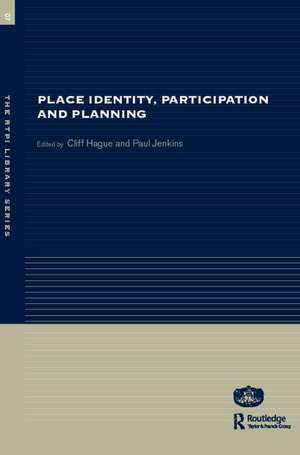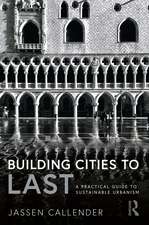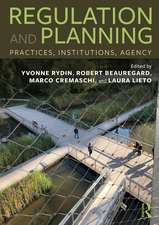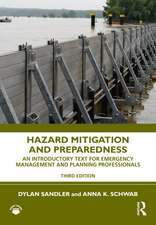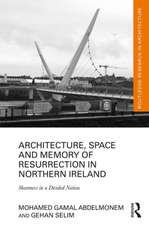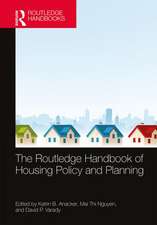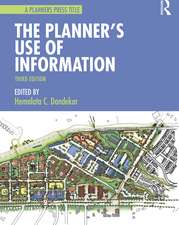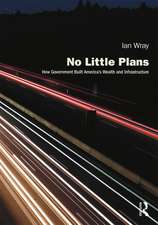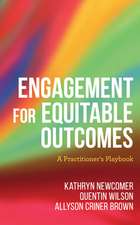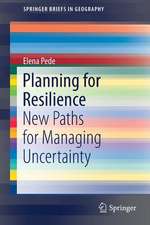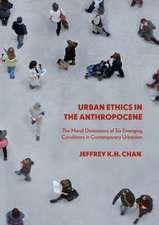Place Identity, Participation and Planning: RTPI Library Series
Editat de Cliff Hague, Paul Jenkinsen Limba Engleză Paperback – 25 noi 2004
| Toate formatele și edițiile | Preț | Express |
|---|---|---|
| Paperback (1) | 330.16 lei 43-57 zile | |
| Taylor & Francis – 25 noi 2004 | 330.16 lei 43-57 zile | |
| Hardback (1) | 1018.46 lei 43-57 zile | |
| Taylor & Francis – 25 noi 2004 | 1018.46 lei 43-57 zile |
Din seria RTPI Library Series
-
 Preț: 280.47 lei
Preț: 280.47 lei -
 Preț: 311.33 lei
Preț: 311.33 lei -
 Preț: 304.33 lei
Preț: 304.33 lei - 15%
 Preț: 536.24 lei
Preț: 536.24 lei -
 Preț: 282.50 lei
Preț: 282.50 lei -
 Preț: 414.32 lei
Preț: 414.32 lei - 26%
 Preț: 427.41 lei
Preț: 427.41 lei -
 Preț: 356.49 lei
Preț: 356.49 lei -
 Preț: 410.50 lei
Preț: 410.50 lei -
 Preț: 345.60 lei
Preț: 345.60 lei - 15%
 Preț: 497.45 lei
Preț: 497.45 lei - 18%
 Preț: 1333.80 lei
Preț: 1333.80 lei -
 Preț: 450.40 lei
Preț: 450.40 lei - 15%
 Preț: 458.50 lei
Preț: 458.50 lei - 28%
 Preț: 989.02 lei
Preț: 989.02 lei - 18%
 Preț: 1275.08 lei
Preț: 1275.08 lei -
 Preț: 451.54 lei
Preț: 451.54 lei - 15%
 Preț: 557.98 lei
Preț: 557.98 lei -
 Preț: 411.04 lei
Preț: 411.04 lei -
 Preț: 487.19 lei
Preț: 487.19 lei - 15%
 Preț: 432.06 lei
Preț: 432.06 lei - 48%
 Preț: 574.28 lei
Preț: 574.28 lei - 15%
 Preț: 465.98 lei
Preț: 465.98 lei -
 Preț: 488.33 lei
Preț: 488.33 lei -
 Preț: 497.92 lei
Preț: 497.92 lei - 18%
 Preț: 1284.97 lei
Preț: 1284.97 lei - 22%
 Preț: 329.10 lei
Preț: 329.10 lei - 15%
 Preț: 427.16 lei
Preț: 427.16 lei - 25%
 Preț: 1165.74 lei
Preț: 1165.74 lei - 15%
 Preț: 429.66 lei
Preț: 429.66 lei -
 Preț: 450.99 lei
Preț: 450.99 lei - 15%
 Preț: 443.13 lei
Preț: 443.13 lei
Preț: 330.16 lei
Preț vechi: 432.15 lei
-24% Nou
Puncte Express: 495
Preț estimativ în valută:
63.20€ • 68.67$ • 53.12£
63.20€ • 68.67$ • 53.12£
Carte tipărită la comandă
Livrare economică 21 aprilie-05 mai
Preluare comenzi: 021 569.72.76
Specificații
ISBN-13: 9780415262422
ISBN-10: 0415262429
Pagini: 272
Ilustrații: 14 b/w images and 15 line drawings
Dimensiuni: 156 x 234 x 13 mm
Greutate: 0.47 kg
Ediția:New.
Editura: Taylor & Francis
Colecția Routledge
Seria RTPI Library Series
Locul publicării:Oxford, United Kingdom
ISBN-10: 0415262429
Pagini: 272
Ilustrații: 14 b/w images and 15 line drawings
Dimensiuni: 156 x 234 x 13 mm
Greutate: 0.47 kg
Ediția:New.
Editura: Taylor & Francis
Colecția Routledge
Seria RTPI Library Series
Locul publicării:Oxford, United Kingdom
Public țintă
Postgraduate, Professional, and UndergraduateCuprins
PART 1: OBJECTIVES, THEORY AND CONCEPTS 1: Planning and place identity Cliff Hague 2: Space, place and territory: an analytical framework Paul Jenkins 3: Place identity and participation Harry Smith PART 2: RESEARCH INTO PRACTICE 4: Background to place identity and planning across Europe Cliff Hague and Paul Jenkins 5: Regional change and place identity Cliff Hague 6: Territorial and place identities: new collaborations in strategic planning Paul Jenkins 7: Local participation and place identity Karryn Kirk 8: Identity, sustainability and settlement patterns Cliff Hague 9: Design and place identity Marilyn Higgins PART 3: CONCLUSIONS 10: Reconceptualizing the narratives of place identity in planning Paul Jenkins and Cliff Hague
Notă biografică
Cliff Hague is internationally known as a planning researcher and teacher, and as a Past President of the RTPI. He has participated in a number of projects for the main spatial planning ministry in the UK, including research into international experience of participatory planning and mediation in plan-making, and serving as the UK national Contact Point on a European research programme called ESPON. His interest and experience in international and comparative planning led to his participation in an Interreg project involving Scottish, Dutch, Norwegian and Swedish local authorities as partners, and a study of the extent to which Interreg has helped to apply the European Spatial Development perspective. He has co-authored with Karryn Kirk a Scoping Study on Polycentric Urban Development for use by practising planners in Interreg projects. His monthly column in ^D<"Planning^D>" magazine is widely read in the UK and abroad.
Paul Jenkins is an architect by training. He has worked during the past thirty years in, and with, a wide range of organisations. More than 20 years of this has been in Africa. This has been in urban planning and housing, architecture and construction - in policy, practice, training and research. His main research focus is the changing relationship between the state and civil society. Recent research has included: housing policy formulation and governance, urban planning and management, land access, and the effect of globalisation on urban areas. His main interests are widening participation and community empowerment, with a focus on low-income groups. He has also become increasingly involved in promoting participation of civil society in human settlements issues in Europe and Africa. Since 1996 he has been based in Edinburgh.
Paul Jenkins is an architect by training. He has worked during the past thirty years in, and with, a wide range of organisations. More than 20 years of this has been in Africa. This has been in urban planning and housing, architecture and construction - in policy, practice, training and research. His main research focus is the changing relationship between the state and civil society. Recent research has included: housing policy formulation and governance, urban planning and management, land access, and the effect of globalisation on urban areas. His main interests are widening participation and community empowerment, with a focus on low-income groups. He has also become increasingly involved in promoting participation of civil society in human settlements issues in Europe and Africa. Since 1996 he has been based in Edinburgh.
Descriere
As we live in increasingly standardized environments, how can we reconcile modern senses of identity with approaches to planning? This book examines contemporary narratives of territory and challenges planners to recognize how we live today.
